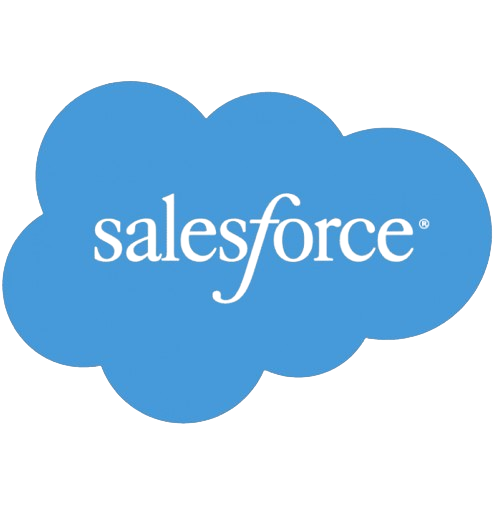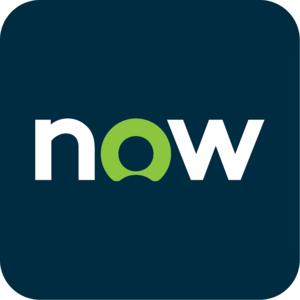Salesforce Clouds: Types, Features & Benefits [2025/2026]
Updated on February 19, 2026
Salesforce, the world’s leading CRM platform, offers a suite of cloud solutions designed to empower businesses of all sizes with scalable, AI-driven tools for growth and efficiency. In 2025/2026, as companies worldwide adapt to digital transformation, Salesforce Clouds are evolving with enhanced AI integration, sustainability features, and global accessibility.
For small and medium-sized businesses (SMBs) and enterprises in regions like the United States, Europe, and Asia-Pacific, understanding the types of Salesforce clouds is key to selecting the right fit.
>> Related Post: Top Salesforce Marketing Cloud Implementation & Consulting Companies in 2025
Why Salesforce Clouds Matter in 2025/2026
The global shift to cloud computing is accelerating, with 92% of organizations using multi-cloud strategies, per Flexera’s State of the Cloud Report. Salesforce Clouds stand out for their AI-first approach, with Einstein AI embedded across platforms, enabling predictive insights and automation. In regions like the US, Europe, and APAC, businesses face unique challenges, such as regulatory compliance in Europe (GDPR) or rapid digital growth in APAC, making Salesforce cloud solutions essential for localization and scalability
>> Related Post: 10 Benefits of Salesforce for Small Businesses in 2025
Types of Salesforce Clouds
Salesforce offers a diverse portfolio of clouds, each tailored to specific business functions. Below, we outline the main types of Salesforce clouds, their core features, and benefits, based on Salesforce’s product roadmap.
1. Sales Cloud
Sales Cloud is Salesforce’s flagship CRM platform, crafted to optimize sales processes and drive revenue growth, making it a cornerstone for businesses in competitive markets.
Features:
– Einstein Lead Scoring: An AI-powered tool that analyzes historical data to rank leads based on their likelihood to convert, prioritizing high-value prospects.
– Salesforce Flow: A low-code automation engine that streamlines repetitive tasks like sending follow-up emails or updating deal statuses.
– Mobile Access: A robust mobile app allowing sales reps to manage pipelines, log calls, and access customer data on the go.
– Opportunity Management: Dashboards for tracking deal progress, forecasting revenue, and visualizing sales pipelines in real time.
Benefits:
These features enable sales teams to work smarter, not harder. Einstein Lead Scoring focuses efforts on high-potential leads, shortening sales cycles, while Salesforce Flow reduces manual tasks, boosting team efficiency. Mobile access ensures agility, allowing reps to engage clients anytime, anywhere, which is critical in fast-paced markets.
2. Service Cloud
Service Cloud is Salesforce’s premier solution for customer service, designed to help support teams resolve issues swiftly and deliver seamless experiences across multiple channels, particularly in GDPR-compliant regions like London.
Features:
– Omni-Channel Routing: A system that intelligently directs inquiries from email, phone, social media, or live chat to the most suitable agent.
– Einstein Case Classification: An AI tool that prioritizes urgent cases by analyzing patterns and customer data.
– Self-Service Portals: Customizable portals with AI-powered chatbots that allow customers to find answers independently.
– Case Management Dashboards: Tools for tracking case progress, monitoring service KPIs, and ensuring timely resolutions.
Benefits:
Omni-channel routing ensures no inquiry slips through the cracks, enhancing customer satisfaction, while Einstein Case Classification accelerates resolution times by focusing on critical issues. Self-service portals reduce support team workloads, empowering customers and cutting costs. In Europe, these features ensure GDPR-compliant, secure interactions, fostering trust. A London-based telecom firm, for instance, used Service Cloud to improve resolution times, delivering personalized support across channels and boosting customer loyalty.
3. Marketing Cloud
Marketing Cloud is a dynamic platform for orchestrating personalized, multi-channel marketing campaigns that engage customers effectively, especially in markets where localized strategies are key.
Features:
– Journey Builder: A tool for designing tailored customer journeys across email, social media, mobile, and web.
– Email Studio: A platform for creating and testing emails with A/B testing capabilities to optimize performance.
– Einstein GPT: Generative AI that crafts on-brand, personalized content for campaigns.
– Audience Studio: A data management platform for segmenting audiences based on behavior and preferences.
Benefits:
Journey Builder creates cohesive, engaging customer experiences, driving higher response rates, while Email Studio’s testing capabilities refine campaigns for maximum impact. Einstein GPT saves time by automating content creation, ensuring relevance in diverse markets. Audience Studio enables precise targeting, boosting campaign effectiveness. A New York-based retailer, for example, used Marketing Cloud to launch targeted email campaigns, significantly improving open rates and customer engagement through localized, AI-driven content.
4. Commerce Cloud
Commerce Cloud empowers businesses to create and manage sophisticated online stores, catering to both B2B and B2C markets with flexibility and scale, ideal for digital-first regions.
Features:
– Headless Commerce Architecture: A decoupled framework allowing customizable storefronts without backend constraints.
– Einstein Product Recommendations: AI-driven suggestions tailored to customer behavior and preferences.
– B2B/B2C Support: Tools for managing complex pricing, bulk orders, and consumer checkout experiences.
– Mobile Optimization: Responsive designs ensuring seamless shopping on smartphones and tablets.
Benefits:
Headless commerce enables brands to craft unique, engaging storefronts, enhancing user experiences, while Einstein recommendations drive conversions by personalizing product suggestions. B2B/B2C support streamlines transactions for diverse customers, and mobile optimization meets the demands of on-the-go consumers.
5. Experience Cloud
Experience Cloud enables businesses to build branded, interactive portals and self-service sites, strengthening relationships with customers, partners, or employees, particularly in GDPR-compliant regions.
Features:
– Customizable Templates: Pre-built designs for creating visually appealing, brand-aligned portals.
– Einstein AI for Personalization: AI-driven tools that tailor content to individual user preferences.
– Integration with Salesforce Clouds: Seamless connectivity with Sales, Service, and Marketing Clouds for unified data.
– Secure Access Controls: Role-based permissions ensuring compliance with data regulations.
Benefits:
Customizable templates allow businesses to create engaging, user-friendly portals, while Einstein AI delivers personalized experiences that boost engagement. Integration with other clouds ensures a cohesive data ecosystem, enhancing efficiency. Secure access controls support GDPR compliance, critical in Europe, reducing regulatory risks.
>> Related Post: Salesforce Agentforce and AI: Trends & Industries to Watch in 2025
Best Practices for Adopting Salesforce Clouds in 2025/2026
- Assess Organizational Needs
Begin by aligning Salesforce cloud selections with your business objectives. For small and medium businesses, starting with fundamental solutions such as Sales Cloud or Service Cloud often provides the best initial value and impact. - Prioritize Integration
Use robust integration tools like MuleSoft to connect Salesforce smoothly with your existing systems. This helps eliminate disconnected data silos, leading to a more unified business operation. - Leverage Artificial Intelligence
Integrate AI features such as Salesforce Einstein to automate repetitive tasks and streamline workflows. This allows your team to focus on strategic activities and improves overall operational efficiency. - Ensure Regulatory Compliance
Configure your Salesforce environment to comply with data protection laws relevant to your region, such as GDPR for Europe or data residency regulations in Asia-Pacific markets. - Invest in User Training
Utilize resources like Salesforce Trailhead to provide comprehensive training for your teams. Well-trained users are more confident and productive, facilitating smoother adoption and greater ROI. - Adopt a Phased Rollout Approach
Implement Salesforce in stages, beginning with smaller, manageable projects. Gradually expand the system usage across the organization, allowing time for optimization and reducing the risk of disruption.
>> Related Post: Top 5 Salesforce Best Practices to Boost Your CRM Efficiency in 2025
Salesforce Services Offered By CCI:
Cloud Consulting Inc. is committed to helping your business succeed with Salesforce. Our Salesforce services include:
FAQs
1. What are the main Salesforce clouds?
Salesforce offers types of Salesforce clouds like Sales Cloud for CRM, Service Cloud for support, and Marketing Cloud for campaigns, each tailored for specific business needs.
2. How do Salesforce cloud solutions benefit SMBs?
Salesforce cloud solutions provide scalable tools for automation and insights, helping SMBs reduce costs by 20% and improve efficiency.
3. What are the types of Salesforce for marketing?
Marketing Cloud is the primary type of Salesforce for marketing, offering Journey Builder and Einstein AI for personalized campaigns.
4. How do Salesforce clouds support AI integration?
Salesforce Clouds embed Einstein AI for predictive features, enabling automation across sales, service, and analytics.
5. What are the types of Salesforce clouds for e-commerce?
Commerce Cloud is a key type of Salesforce cloud for e-commerce, with features like headless architecture and AI recommendations.
6. How can Salesforce cloud solutions ensure compliance?
Salesforce cloud solutions include Shield for encryption and GDPR compliance, protecting data in regulated industries.
7. What are the types of Salesforce for analytics?
Tableau (Analytics Cloud) is a type of Salesforce for data visualization, offering AI-powered insights for decision-making.
8. How do Salesforce clouds scale for global businesses?
Salesforce Clouds support multi-region deployments with localization features, ideal for international expansion.
9. What are the types of Salesforce clouds for customer communities?
Experience Cloud is the type of Salesforce cloud for building portals and communities, enhancing self-service.
10. How does CCI optimize Salesforce cloud solutions?
CCI’s Integrow integrates Salesforce cloud solutions with ERP systems, ensuring seamless scalability for businesses.





